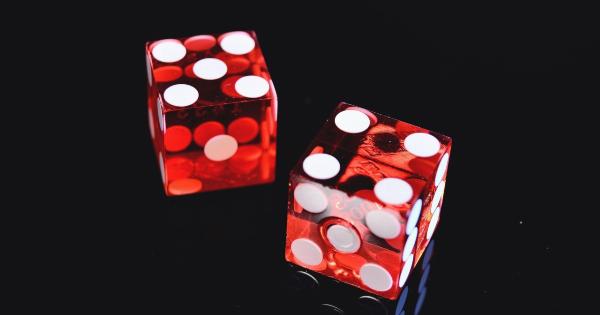Compulsive gambling, also known as gambling disorder, is a condition characterized by an uncontrollable urge to engage in gambling activities despite the negative consequences it may have on an individual’s life.
This behavioral addiction can lead to a range of emotional, financial, and psychological issues for the person affected. While the connection between compulsive gambling and criminal conduct has been widely debated, numerous studies and anecdotal evidence suggest a strong correlation between the two.
The Relationship Between Compulsive Gambling and Criminal Behavior
Research has consistently shown that individuals with gambling disorders are at a higher risk of engaging in criminal behavior compared to the general population. Some of the main factors contributing to this relationship include:.
1. Financial Desperation
Compulsive gambling often leads to significant financial losses as individuals continue to chase their losses in an attempt to recover.
This desperation can push them into resorting to illegal activities such as theft, embezzlement, or fraud to fund their gambling habits or cover their debts. Not being able to meet their financial obligations may also lead to involvement in organized criminal activities or loan sharks.
2. Impulsivity and Poor Decision-Making
Individuals suffering from gambling disorders often exhibit impulsive behavior and poor decision-making skills. These traits can extend into other areas of their lives and make them more susceptible to engaging in criminal conduct.
Impulsivity may lead them to participate in illegal activities without thoroughly considering the consequences, further fueling the cycle of addiction and criminal behavior.
3. Co-Occurring Substance Abuse
Substance abuse frequently co-occurs with gambling disorders, leading to an increased likelihood of criminal behavior.
Studies have shown that individuals with gambling disorders are more likely to abuse drugs or alcohol as a way to cope with the emotional and financial distress caused by their addiction. Substance abuse can impair judgment, increase aggression, and lower inhibitions, making individuals more prone to engaging in illegal activities.
4. Need for Instant Gratification
Compulsive gambling is driven by the need for instant gratification and the adrenaline rush associated with placing bets. This desire for immediate rewards can lead individuals to engage in criminal activities that offer quick financial gains.
This may involve participation in illegal gambling operations, loan sharking, or even involvement in organized crime networks.
5. Psychological Comorbidity
Many individuals with compulsive gambling disorders also suffer from co-occurring mental health conditions such as depression, anxiety, or antisocial personality disorder.
These underlying psychological issues can contribute to an increased risk of criminal behavior. In some cases, the gambling disorder may be a form of self-medication for these individuals, further exacerbating their likelihood of engaging in illegal activities.
Addressing the Link between Compulsive Gambling and Criminal Conduct
Recognizing and addressing the connection between compulsive gambling and criminal conduct is essential for effective prevention and intervention strategies. Some approaches include:.
1. Awareness and Education
Raising awareness about the potential consequences of compulsive gambling and its connection to criminal behavior is crucial.
Educational campaigns targeting both the general population and at-risk individuals can help in early identification and intervention efforts.
2. Treatment and Rehabilitation
Providing accessible and effective treatment options for individuals suffering from gambling disorders is essential to break the cycle of addiction and reduce the risk of criminal behavior.
Counseling, therapy, support groups, and rehabilitation programs can play a significant role in recovery.
3. Support Services
Establishing support services that address the financial and employment challenges faced by individuals with gambling disorders can help mitigate the risk of criminal conduct.
Providing financial counseling, job training, and opportunities for alternative sources of income can assist in their journey towards recovery and reintegration into society.
4. Legal Measures
Implementing stricter regulations and laws surrounding gambling activities, particularly online gambling platforms, can help reduce the prevalence of gambling disorders and associated criminal behavior.
This may include age restrictions, self-exclusion programs, and limitations on advertising to prevent vulnerable individuals from falling into addiction.
Conclusion
The correlation between compulsive gambling and criminal conduct is a complex issue influenced by various factors such as financial desperation, impulsivity, psychological comorbidity, and the need for instant gratification.
Understanding this link is crucial in developing effective prevention, intervention, and treatment measures. By addressing the underlying causes of gambling disorders and providing support services, we can reduce the risk of criminal behavior and help individuals regain control over their lives.






























